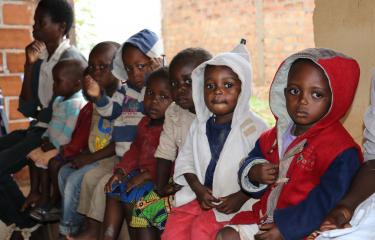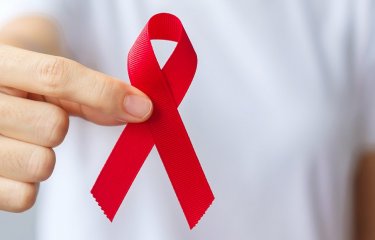The number of newborns infected with Hepatitis B may be twice as high as HIV in sub-Saharan Africa.
While the risk of mother-to-child transmission of Hepatitis B is well documented in Asia, data regarding the situation in Africa are still scarce. In an article published in the Alimentary Pharmacology & Therapeutics journal, Epidemiologists from Institut Pasteur, Ecole Pasteur/CNAM de Santé Publique (Paris) and Mater Misericordiae University Hospital (Dublin), estimate that more than 360,000 infants in sub-Saharan Africa are infected with HBV at birth each year. This figure is almost twice the annual number of newborn perinatally infected with HIV in this region (around 190,000 per year).
The scientists conducted a systematic review and meta-analysis to estimate the risk of mother-to-child transmission in sub-Saharan Africa. They identified fifteen studies from 11 African countries that enrolled infants born from HBV-infected women and that tested the infants between 3 and 12 months of age for Hepatitis B infection.
The results show that the risk of mother-to-child transmission of Hepatitis B is 5% when the mother is negative for HBe antigen (a marker of high viral replication), but it goes up to 38% when the mother carries this antigen.
“Mother-to-child transmission of Hepatitis B virus has been so far neglected in sub-Saharan Africa. Our result clearly highlights the need for implementing prevention strategies. In particular, since 2009, WHO recommends to vaccinate all newborns within the first 24h of life” explains Dr Yusuke Shimakawa, from the Epidemiology of Emerging Diseases Unit at the Institut Pasteur.
Indeed, Dr Shimakawa is leading together with Dr Muriel Vray, Head of the Epidemiology Unit at the Institut Pasteur in Dakar, the NeoVac (Neonatal Vaccination against Hepatitis B in Africa) programme with the objective to identify in three African countries (Senegal, Madagascar, and Burkina Faso) the best sustainable and locally adapted strategy to vaccinate neonates against Hepatitis B within 24 hours of birth. “We have started this year the NeoVac project with a first preliminary study that will help us to develop an intervention in each of the partner countries coordinated by teams from the Institut Pasteur in Dakar, the Institut Pasteur in Madagascar and LAMIVAC in Burkina Faso” comments Dr Shimakawa.
Chronic carriers of Hepatitis B who were infected at birth from their mothers are at high risk of cirrhosis, liver cancer and ultimately death. Vaccination of infants at birth is thus a strategy that is critical to reduce the disease burden associated with chronic Hepatitis B.
The NeoVac project is supported by the Total Foundation
Source
Keane, E., Funk, A. L. and Shimakawa, Y. (2016), Systematic review with meta-analysis: the risk of mother-to-child transmission of hepatitis B virus infection in sub-Saharan Africa. Aliment Pharmacol Ther, november 2016.





